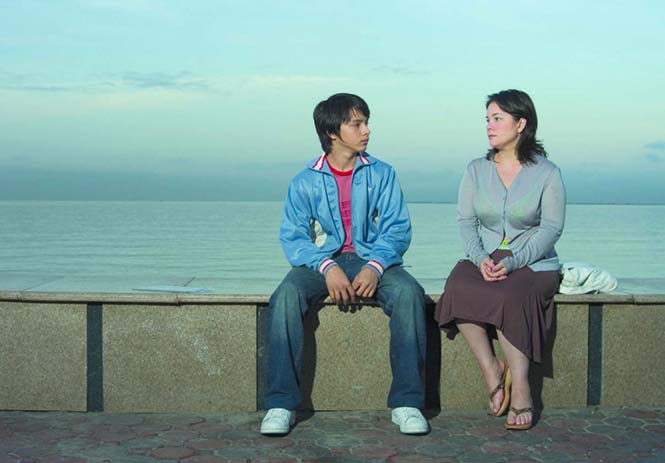In 2005, after business and life partners Rebie P. Ramoso and Kristine S. Calleja had a “successful summer selling imported items bought from the Internet,” the couple decided it was time to “look for (another business venture that, nonetheless, was not just business but) a venture we could identify with,” says Kristine.
Specifically, “we were just talking on the phone one day, and Rebie (single at that time) joked that life would be simpler for her if she didn’t have to guess whether the woman she liked is single and (a) lesbian like us if only the woman was wearing a shirt that says she’s lezzie and available,” Kristine recalls. Rebie, then, was already designing shirts with lesbians in mind as the market; and, as soon as the designs were shown to Kristine, the venture became serious.
And so came into being Radar Pridewear.
In hindsight, “our out-of-pocket investment already reached seven figures,” Kristine says – then, half smiling: “Ouch!” But more than the money, the couple spent a considerable amount of time researching the viability of the business, which was when they discovered that fashion still follows gender conventions — clothes designed for women are almost always made feminine, leaving women with limited choices, so that, yes, lesbians remain an unserved market.
When Radar was started, “one of our indicators of success then was just to see a stranger in a Radar shirt in SM Megamall,” Rebie says.
“When we started, the only experience we could count was selling RTW to family and friends, which wasn’t the same as operating an apparel business. Not only didn’t we have a background in apparel, none of our families did, too. We had to start from scratch. We researched and researched and, when we had no way of obtaining information, we followed our heart. This was how we found some of our suppliers,” Kristine recalls.
Kristine adds: “Our lack of experience in the apparel business didn’t pose as much as a challenge for us in starting Radar than in growing it. It is easier to start a business than to grow one. What we’re facing now are ‘growing pains’. Several months ago, we closed our second store in Podium after a year of operations. We realized we needed to have at least 15 stores to rationalize our operating and marketing expenses. We decided to grow the business organically. Today, we maintain only one store, and that is in Katipunan. Everyday has become an opportunity to learn and grow.”
But before long, several women in several malls were seen wearing their shirts, so that by 2007, the first Radar outlet opened in Katipunan, near Miriam College and the Ateneo (the two schools where Rebie spent most of her childhood and part of her adult life, so that “opening our first Radar outlet (there was a) coming out in a big way for me,” Rebie says). Since then, too, Radar has partnered with the Rainbow Rights Project, a group of lesbian and gay lawyers and legal activists dedicated to the promotion of a rational discourse on LGBT rights; and the Task Force Pride, the organizer of the annual Pride Celebration in the Philippines.
“When we were starting Radar, we wanted it to appeal to lesbians looking for more masculine styles of clothes. But Radar surprised us; it appealed to women, regardless of gender, who found that the cut and texture make them slimmer, sexier and younger; and it appealed to girls, too, who found the vibrant color combinations and witty statements and graphics attractive. And because the style’s masculine, it also appealed to a number of men who were slim enough to fit and look good in it,” Kristine says. “But we don’t want to measure our success on the number of shirts we’ve sold. We’d much rather measure it on the awareness and dialogue it fosters.”
Kristine and Rebie have done “some soul searching at the start of this year, and (we) realized it makes better business sense to bring Radar into familiar territory. For Rebie and me that would be the Internet, since part of what we do in Tham & Manuelle, our creative boutique, is Internet marketing and communications. We are currently developing a more international image for Radar and a new measurement guide for the products,” Kristine says, urging everyone to “watch out for the new Radar!”
For now, though, Radar continues to make inroads in the mainstream as “the first and, so far, only alternative lifestyle clothing line for women in the country. Its unconventional designs appeal not only to members of the LGBT community, but also to a broader market comfortable and confident with their sexuality,” Kristine ends.
*FIRST PUBLISHED IN OUTRAGE MAGAZINE

























































































